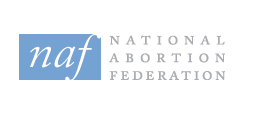Be Bold…In Your Job Search & For Your Professional Development
One of my favorite inspirational quotes is “Be bold and mighty forces will come to your aid” — although, I’m pretty sure that that’s a paraphrased version of the actual quote…
Regardless (or irregardless if you’re from Miami — have you seen this youtube video?! I won’t link to it here because, well, it’s not appropriate — but google it, it’s hi-larious!), it’s a quote that, in this economic climate, should really be put to use.
In an article on National Law Journal by Ari Kaplan, author of Reinventing Professional Services: Building Your Business in the Digital Marketplace, explains that he was given the advice to “be bold” by Richard Susskind when he asked how he could expand his career opportunities in 2012. Here’s a snippet of what Kaplan wrote:
I have spent much of the past two months considering the meaning of boldness, both personally and professionally. The idea intimidates me, but also reminds me of trying to meet Secretary of State Warren Christopher in 1996 while working in the Office of Foreign Missions during my second summer of law school.
I simply walked into his office suite and asked his assistant whether he was free. Our conversation went something like this:
“Hi, I’m Ari Kaplan, is the secretary available?”
Confused pause.
“Who are you?”
Signature smile [a cross between Seinfeld’s Kramer and Jim Carrey’s Ace Ventura].
“Yes, I’m Ari Kaplan, I work here.” [Badge connected to the traditional Washington silver ball chain hanging from my neck swings proudly.]
“Who?” [a common repeat question in the sitcom that is my life].
Less confidently, “Ari Kaplan.”
She stands with authority.
“Excuse me.”
She walks away.
I can’t believe this is going to work. What a great story. Why are these people watching me?
She returns. “I’m sorry the secretary is busy.”
Undeterred. “I just want to introduce myself; I work here.”
Unpersuaded. “I’m sorry.”
Dejected. I walk away.
The nearby guard enjoying the dialogue asks: “Where are you from?”
“Brooklyn,” I respond.
He laughs. “You’ve got chutzpah, kid.”
Sure, trying to get in an impromptu meeting with Secretary Warren Christopher didn’t work out for Kaplan, but so what? His story resonated with me because nothing bad happened to him after trying his luck. A piano didn’t drop from the ceiling onto his head because he took a bold step that didn’t work out the way he hoped it would.
So, I guess I’m saying — take a leap. Make bold moves for the sake of your career because you never know what will come of it.
Yesterday, my colleague and I went to a discussion on legal pipeline programs. One of the speakers, Veta Richardson, shared a story with us about how a risky choice paid off early in her career.
During her second year of law school, she came across a paid internship with Sunoco. By the time she applied, the 5 spots were already filled. Regardless, Richardson wrote a letter to Sunoco’s general counsel and told him that she would work in the legal department for the summer for free if he would just give her a shot. Well, he did. And at the end of the summer, she was one of the two interns who were offered permanent positions.
Thoughts? How have you been bold lately?
Permalink Comments off



 professional, and collegial work environment for employees in addition to state of the art facilities, cutting edge technology, and a competitive and comprehensive compensation and benefits package.
professional, and collegial work environment for employees in addition to state of the art facilities, cutting edge technology, and a competitive and comprehensive compensation and benefits package.